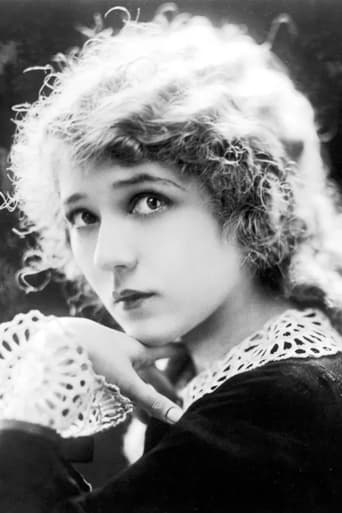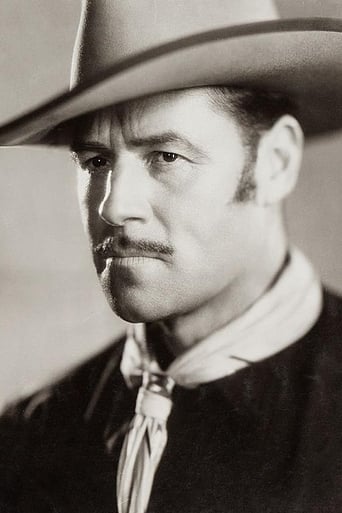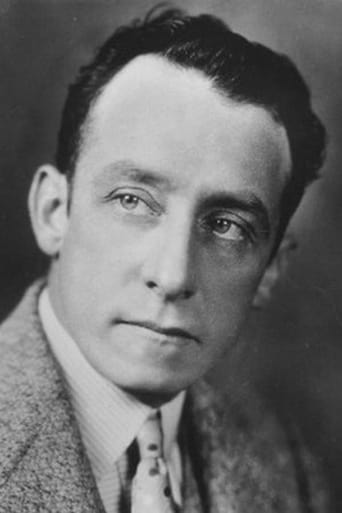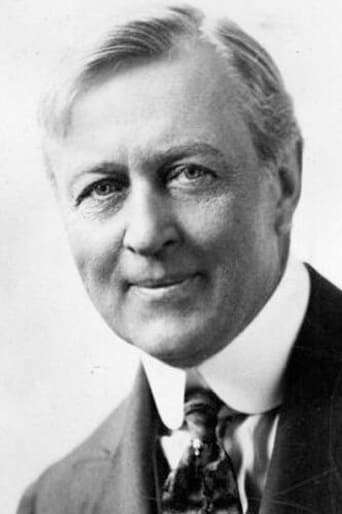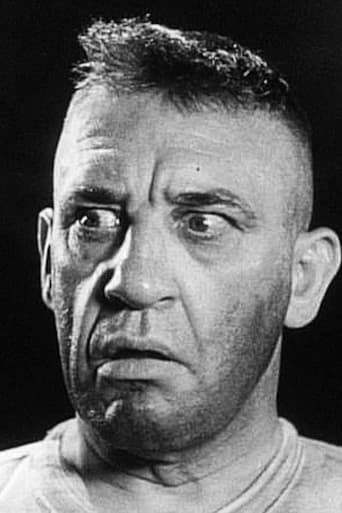Cathardincu
Surprisingly incoherent and boring
Helllins
It is both painfully honest and laugh-out-loud funny at the same time.
Philippa
All of these films share one commonality, that being a kind of emotional center that humanizes a cast of monsters.
Geraldine
The story, direction, characters, and writing/dialogue is akin to taking a tranquilizer shot to the neck, but everything else was so well done.
bkoganbing
According to his autobiography The Little American is the film that Cecil B. DeMille wanted to make with Mary Pickford. Both were strong supporters of the Allied cause in World War I. But Adolph Zukor wanted a box office draw with a western so A Romance Of The Redwoods was done first. DeMille envisioned The Little American as part of his contribution to the propaganda war effort. And Pickford was well known for her bond tours with her husband Douglas Fairbanks.The Little American has Mary Pickford a daughter of the a US Senator and being courted by two men, German-American Jack Holt who receives orders to return to the Fatherland for an officer's commission in the newly declared war and French diplomat Raymond Hatton similarly ordered home. Pickford's family has a château in France and she travels there to be a nurse. But her ocean liner is torpedoed like the Lusitania and she eventually gets there.But as it turns out the château is in German occupied territory and she's asked to do a little espionage. And who do you think is among the Germans occupying, none other than Holt.As this was a film that DeMille himself labels a contribution to the war effort a lot of it can be dismissed. Pickford was her heroic best as The Little American. Some aspects of the real life Edith Cavell story are incorporated here with a lot more happy ending.As for the German atrocities. They'd have to wait until the next war when Hollywood couldn't make up what they did in real life.
burntoutsquid
(SPOILERS IN FIRST PARAGRAPH) This movie's anti-German sentiment seems painfully dated now, but it's a brilliant example of great war-time propaganda. It was made back when Cecil B. DeMille was still a great director. (Ignore all his later Best Picture Academy Awards; he never made a very good sound film.) This movie lacks the comedy of most of Pickford's other films, and really it was DeMille's movie, not Pickford's. The vilification of the Germans can be compared to the way "The Patriot" of 2000 did the same to the British. The only good German in the film was a reluctant villain who had the ironic name of Austreheim. They even had Pickford take an ill-fated trip on a luxury ship that gets torpedoed by a German submarine. So what'll get the Americans more stirred up to war? The sinking of the Lusitania, or watching America's favorite Canadian import sinking in it? All throughout the film DeMille runs his protagonist from one kind of horrible calamity to another, barely escaping death, hypothermia, depravity, rape, execution, and explosions that go off in just the right place to keep her unharmed. The way she is saved from a firing squad is no more believable than the way the humans in "Jurassic Park" were ultimately rescued from the velociraptors. If I was any more gullible to such propaganda I would punish myself for having a part-German ancestry. Was it a good film? Aside from a humorous running gag about Americans abroad thinking they're untouchable – that was apparently a joke even back then – you might not be entertained. You'll find it more than a little melodramatic, and obviously one-sided, but the first thing that came to my mind after watching it is that it was years before Potemkin's false portrayal of a massacre revolutionized the language of cinema as well as a movie's potential for propaganda. It made me wonder: what became of Cecil B. DeMille? Somewhere between the advent of sound and "The Greatest Show on Earth" he seemed to lose his ambition. Ben Hur looked expensive, but not ambitious. In a sentence, this movie is for 1) Film historians, 2) Silent Film Buffs, 3) Mary Pickford fans, or 4) DeMille fans, if such a person exists.
Snow Leopard
In its own time, this effective and often compelling wartime melodrama used the talents of Mary Pickford and a young Cecil B. DeMille in support of the Allies in the first world war. It works well in itself, and it might be even more worthwhile now, for a generation that can view the events of that era more impartially, in order to draw some broader lessons from it.Pickford plays Angela, "The Little American", a young woman courted by a German and a Frenchman who are both living in America. This familiar setup soon becomes much more serious when the war breaks out, and the two young men return to Europe and the battlefield, with Pickford's character soon joining them in the midst of the turmoil and terror of the conflict. The ensuing story occasionally has some points in common with the Valentino/Rex Ingram classic "The Four Horsemen of the Apocalypse", though with a generally more hopeful tone.The first half has a particularly excellent sequence that depicts a submarine attacking a passenger liner. It works very well both dramatically and thematically. In particular, the light and motion of the sub's searchlight darting erratically through the darkness, so that its crew can survey the results of their attack, produces a chilling effect that is probably more effective than any amount of screaming could have been. The sequence works convincingly in portraying the barbarous, inhuman nature of attacks on civilian targets, and it also demonstrates the emptiness of the excuses used to justify them.That is probably the strongest sequence, but the main story in the château also has some worthwhile material. The German soldiers are largely portrayed as subhuman, but this is balanced to a large degree by the character of Karl (Jack Holt) and his inner struggle between his sense of duty and his sense of justice. Holt and Pickford work well together, and Raymond Hatton, though not getting as much screen time, also makes good use of his opportunities.With the delightful Pickford as the star, and DeMille already showing his ability to film set pieces effectively, this must have been very persuasive in its original purpose of strengthening support for the Allied cause. But now it can serve a different, and possibly more important, purpose. The harrowing experiences of Angela and the other characters are effective in demonstrating how quickly the fabric of human society can tear apart when military victory becomes all-important. While less ambitious and less well-known than the best-known of the classic movies that came out of the first world war, "The Little American" works well, and it is well worth the time to watch.
Arthur Hausner
This film is blatantly an anti-German propaganda film to which audiences flocked because America declared war on Germany a few months before its release. It's very effective even today, as I found myself despising the Germans for their actions, which included killing civilians and raping some women. Mary Pickford plays the title character, uncharacteristically a grown woman instead of a child she played in most of her films during the silent era. She is wooed by German-American Jack Holt and French-American Raymond Hatton when war breaks out in 1914. The Germans are depicted as being overly brutal.There was one scene that made me laugh, when the Germans break the door down to enter her aunt's home. Mary tells them in deadly ernest while waving a small American flag, "Gentlemen - you are breaking into the home of an American citizen - I must ask you to leave." The Germans, led by Walter Long, roared with laughter too. I couldn't decide if it was comic relief or if you were suppose to sympathize with Mary.I rather enjoyed the film for what it was. It was paced well by DeMille and the acting was fine but typical of early silents. Walter Long made a good heavy - he can sneer with the best of them.You may notice in the cast list some famous names (Wallace Beery, Ramon Novarro, etc.) without character names. You never actually see these actors, but they are known to have been in the film from various writings, including DeMille's autobiography.
